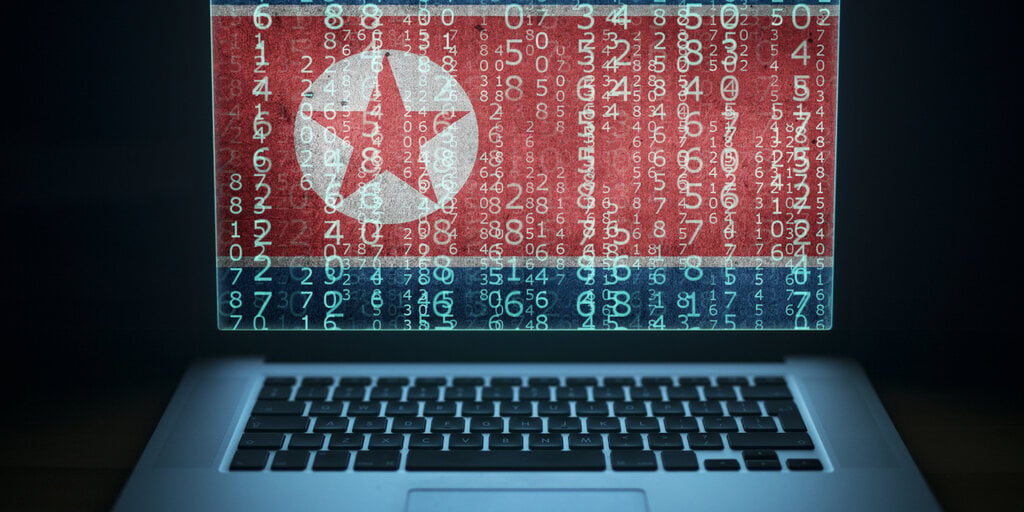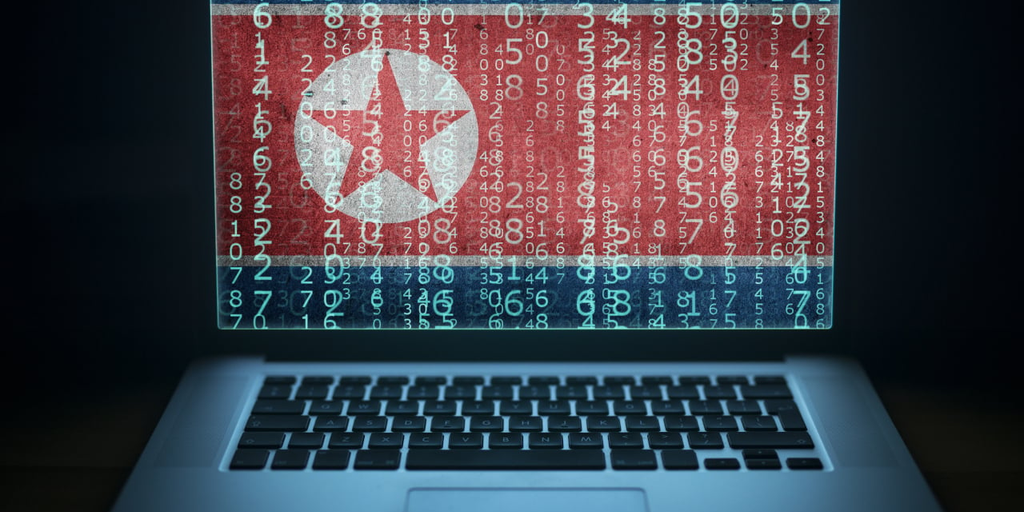Coins
This Week in Bitcoin: ETF Flows Turn Red, SEC Hack Plea and GameStop Considers Buying
Published
2 months agoon
By
admin

Bitcoin‘s price action this week was mostly flat: The biggest virtual coin hasn’t moved over the last day, and is currently priced at $97,575, CoinGecko shows. It’s up just 1.5% on the week.
The oldest cryptocurrency hasn’t touched the magical $100,000 mark since the beginning of February as traders try to navigate an increasingly complex new investing landscape—with an unpredictable new U.S. President in the White House.
President Donald Trump has threatened, gone ahead with, and paused tariffs against major economies in recent weeks—all of which has impacted crypto prices to varying degrees.
And this week, data showing that consumer prices rose more than expected last month in the U.S. only further hurt risk assets like crypto.
Still, the biggest cryptocurrency is still up significantly since the new commander in chief got elected, rising over 40% since the November 5 election, when it was trading for $69,335.
ETF flows
Investors pulled money out of Bitcoin exchange-traded funds every day this week, according to Farside Investors, with $650.8 million cashed out from Monday to Thursday. Flows flipped positive on Friday with $70.6 million in investment, but not nearly enough to counteract the earlier losses.
The bearishness comes after the funds experienced massive demand in January, but flows have slowed down since President Trump started talking tariffs. And there was a surprise twist the previous week when Ethereum ETF flows actually beat those for Bitcoin funds.
Strategy back to buying
Strategy (formerly MicroStrategy) hit the buy button again after not buying cryptocurrency for one week at the end of January. The software company, which has pivoted hard to stockpiling Bitcoin, shared in its latest disclosure that it spent $742.4 million on BTC between February 3 and February 9.
As of February 9th, 2025, @Strategy holds 478,740 $BTC equivalent to ~2.3% of all bitcoin that will ever be in circulation and ~76% of all bitcoin held by public companies.
— Strategy (@Strategy) February 12, 2025
The company rebranded last week in a “a natural evolution” to become more Bitcoin-focused, and now holds a total of 478,740 BTC, worth nearly $47 billion.
GameStop eyeing Bitcoin?
And video game retailer GameStop’s shares pumped Thursday on news that the meme stock company was thinking about investing in Bitcoin.
A CNBC report, citing unnamed sources close to the company, said that the company was “exploring investments in alternative asset classes”—including the orange coin. GameStop did not respond to Decrypt‘s request for comment.
The video game shop jumped back in the spotlight last year after Keith “Roaring Kitty” Gill, the trader who started the original 2021 stock buying frenzy, posted a meme online for the first time in three years. He helped pump the price of the stock across multiple 2024 appearances, including his first livestream since the original run.
GameStop (NYSE: GME) finished the week priced at $27.00 a share after rising 5.5% this week.
Man admits to SEC X hack
Remember when Bitcoin shot up in price after the Securities and Exchange Commission’s X account tweeted that the long-awaited Bitcoin ETFs had been approved, only to drop again on news of a hack?
Well, the man guilty of the act that caused all the commotion has admitted to the crime.
The @SECGov twitter account was compromised, and an unauthorized tweet was posted. The SEC has not approved the listing and trading of spot bitcoin exchange-traded products.
— SEC Chair Gary Gensler Archive (@GenslerArchive) January 9, 2024
Eric Council, 25, who was arrested in October, pleaded guilty in a Washington federal court on Monday to aggravated identity theft and access device fraud, Bloomberg reported.
Council, of Athens, Alabama, could now face up to 15 years in prison for identity theft and an additional three years for impersonating a federal agency.
Edited by Andrew Hayward
Daily Debrief Newsletter
Start every day with the top news stories right now, plus original features, a podcast, videos and more.
Source link
You may like


$90K Breakout Ahead as BTC Decouples from US stocks after China’s Tariffs


Toncoin Takes A Hit With 12% Correction After Failing To Break $4.34, More Pain?


Bitcoin sentiment falls to 2023 low, but ‘risk on’ environment may emerge to spark BTC price rally


Crypto Trader Says Dogecoin Is at a Critical ‘Make-or-Break’ Level, Updates Outlook on Solana and Avalanche


Bitcoin Covenants: CHECKSIGFROMSTACK (BIP 348)


Illinois State Senator’s Bill Seeks to Claw Back $163 Million Lost to Crypto Fraud
Coins
Bitcoin Staking Protocol Babylon Reveals BABY Token Airdrop
Published
22 hours agoon
April 3, 2025By
admin

The Babylon Foundation, an entity tied to the Bitcoin staking protocol Babylon, released tokenomic details for its BABY token Thursday—and revealed an airdrop for early users.
The Foundation will provide 6% or 600 million BABY, the Babylon Genesis Network’s native governance token, to five reward groups and early supporters as part of its airdrop. The vast majority of tokens (585 million) set aside for the airdrop campaign will be provided to those who have staked Bitcoin with Babylon.
“Tokens will be directly transferred to the registered BABY address upon Babylon Genesis launch,” the Babylon Foundation posted on X (formerly Twitter). “No claims needed.”
The Early Adopters Airdrop (6% of supply) comprises 5 categories:
30M BABY – Staking participation, every Phase-1 stake is eligible
335M BABY – Base Phase-1 staking rewards
200M BABY – Bonus for Phase 1 stakes that will transition to Phase 2
30M BABY – Pioneer Pass NFT…
— Babylon Foundation (@bbn_foundation) April 3, 2025
The largest allocation, 335 million BABY tokens, is for those who participated in Babylon’s Base Phase-1 staking, the locking up of native Bitcoin tokens via Babylon which took place across multiple instances called “caps.”
The protocol launched three total caps of Bitcoin staking, the first of which was held to just 1,000 Bitcoin and led to a major spike in transaction fees as users rushed to be among the first to stake their Bitcoin ahead of anticipated rewards.
Another 200 million BABY is earmarked for users that transition their Phase-1 stakes to Phase-2. Two smaller buckets—of 30 million and 5 million BABY, respectively—will be provided to Pioneer Pass NFT holders and Github contributors.
BABY was first revealed in February, and users were able to create and register a BABY address and connect it to their Bitcoin staking wallet. At the launch of the Babylon Genesis Network, users will automatically receive their airdropped BABY tokens.
Users who have participated in Babylon staking, but have not registered their address, can still do so if they transition their stakes to Phase-2. Other social and wallet campaign airdrops for BABY are also planned by the Foundation.
Babylon Genesis is a layer-1 proof-of-stake blockchain that is secured by Bitcoin, meaning it uses Bitcoin staking to secure and provide liquidity to the network. The network will utilize a “dual-staking” model, allowing users to stake both BTC and BABY tokens.
Babylon previously raised more than $70 million to make Bitcoin the “backbone of proof-of-stake systems”—in other words, making it possible to use the leading crypto asset to help secure proof-of-stake chains like Ethereum or Solana.
Edited by Andrew Hayward
Daily Debrief Newsletter
Start every day with the top news stories right now, plus original features, a podcast, videos and more.
Source link
Coins
Alabama, Minnesota Advance Bitcoin Reserve Plans With Companion Bills
Published
2 days agoon
April 2, 2025By
admin

Bitcoin could soon find a place on state balance sheets, with Alabama and Minnesota both pressing ahead with legislative frameworks for state Bitcoin reserves.
In Minnesota, House File 2946, also called the Minnesota Bitcoin Act, introduced by Rep. B. Olson (R-MN) on Tuesday, would allow the state to invest in Bitcoin directly. Its Senate counterpart, SF 2661, was introduced earlier in March.
The identical bills seek to authorize the State Board of Investment to allocate public funds into Bitcoin, marking a direct acknowledgment of the digital asset’s long-term financial potential.
Meanwhile in Alabama, Senate Bill 283, filed this week by Sen. April Weaver (R-AL)is a companion to House Bill 482, introduced earlier in March.
Though neither bill explicitly names Bitcoin, the legislation limits eligibility to digital assets with a market capitalization of at least $750 billion.
Currently, only Bitcoin meets that threshold, effectively making it the sole qualifying asset under the proposed framework.
If the proposals pass, they would take effect on October 1, 2025 in Alabama and January 1, 2026 in Minnesota.
Both states are embracing a legislative tactic commonly used to fast-track approval: introducing identical bills in both chambers.
HF 2946/SF 2661 would allow the state to not only invest in Bitcoin but also accept it for tax payments and government transactions.
The bill amends more than a dozen statutes to incorporate crypto, including tax codes, pension plans, and investment rules.
The Alabama legislation also outlines digital assets must be held directly by the treasurer, by a qualified custodian, or via exchange-traded products, and cannot exceed 10% of any state fund.
U.S. state Bitcoin reserve proposals
The proposals follow a wider trend of state-level efforts across the U.S. to explore the world’s largest crypto as a strategic reserve asset.
While some states, including Wyoming, Montana, and Pennsylvania, have recently paused or withdrawn their Bitcoin reserve plans, the momentum remains strong elsewhere.
South Carolina recently introduced a bill to allow its treasurer to allocate up to 10% of certain state funds into digital assets—starting with Bitcoin.
Oklahoma’s House Bill 1203, which allows for crypto asset reserves, passed overwhelmingly and is pending Senate review. Texas passed Senate Bill 21 to establish a Bitcoin strategic reserve and is awaiting gubernatorial approval.
Arizona and Utah have introduced their own frameworks, although Utah’s reserve language was dropped during revisions.
Bitcoin reserve tracker Bitcoin Law’s data shows that 47 state-level Bitcoin reserve bills have been introduced in 26 states, 41 of which are currently live.
Sentiment around the passing of a state Bitcoin reserve proposal appears to have turned negative, however. Users of MYRIAD, the decentralized prediction market launched by Decrypt’s parent company DASTAN, overwhelmingly predicted that no state would implement such a reserve, in a market that closed at the end of March.
Daily Debrief Newsletter
Start every day with the top news stories right now, plus original features, a podcast, videos and more.
Source link
Coins
There’s More to North Korea’s Hacking Ops Than Just Lazarus Group: Paradigm
Published
4 days agoon
April 1, 2025By
admin

In February, North Korean hackers broke headlines with what is now regarded as the largest single hack in crypto history.
The Lazarus Group stole at least $1.4 billion from Bybit and later funneled those funds to crypto mixers.
“Someone had pulled off the biggest hack in [crypto] history, and we had a front-row seat,” Samczsun, Research Partner at Paradigm, recalled in a blog post.
The researcher said they witnessed the theft in real-time and collaborated with Bybit to confirm the unauthorized access.
Samczsun was working with SEAL 911, an emergency response unit affiliated with the Security Alliance, a nonprofit organization dedicated to securing decentralized systems.
But these attacks aren’t all just about the Lazarus Group. There’s more to North Korea’s cyber offensives than previously thought.
There’s a misconception about how to “classify and name” the group’s operations.
While the term “Lazarus Group” is “colloquially acceptable,” discussing how the DPRK (Democratic People’s Republic of Korea) runs its cyber operations on the offensive needs more rigor, Samczsun claimed.
Lazarus Group has become the preferred term by the media when describing DPRK cyberactivity. Cybersecurity researchers “created more precise designations” to show which ones are working on specific activities, they added.
A hacking bureau
The DPRK’s hacking ecosystem operates under the Reconnaissance General Bureau (RGB), which houses several distinct groups: AppleJeus, APT38, DangerousPassword, and TraderTraito
These groups operate with specific targeting methodologies and technical capabilities.
TraderTraitor, identified as the most sophisticated DPRK actor targeting the crypto industry, focuses on exchanges with large reserves and employs advanced techniques, successfully compromising Axie Infinity through fake job offers and manipulating WazirX.
AppleJeus specializes in complex supply chain attacks, including the 2023 3CX hack that potentially affected 12 million users.
Dangerous Password, meanwhile, conducts lower-end social engineering through phishing emails and malicious messaging on platforms like Telegram.
Another subgroup, APT38, spun out of Lazarus in 2016 and focused on financial crimes. It first targeted traditional banks before shifting attention to crypto platforms.
In 2018, the OFAC first mentioned “North Korean IT workers,” which in 2023 were identified by researchers as “Contagious Interview” and “Wagemole,” operating through schemes where the threat actors either pose as recruiters or attempt to get hired by target companies.
There’s still hope
While the DPRK has shown its ability to deploy zero-day attacks, there have been “no recorded or known incidents” of it deploying directly against the crypto industry, Samczsun said.
The researcher urged crypto companies to implement basic security practices such as least privilege access, two-factor authentication, and device segregation. If preventive measures fail, connecting with security groups like SEAL 911 and the FBI’s DPRK unit would also be helpful.
“DPRK hackers are an ever-growing threat against our industry, and we can’t defeat an enemy that we don’t know or understand,” Samczsun wrote.
Edited by Sebastian Sinclair
Daily Debrief Newsletter
Start every day with the top news stories right now, plus original features, a podcast, videos and more.
Source link

$90K Breakout Ahead as BTC Decouples from US stocks after China’s Tariffs

Toncoin Takes A Hit With 12% Correction After Failing To Break $4.34, More Pain?

Bitcoin sentiment falls to 2023 low, but ‘risk on’ environment may emerge to spark BTC price rally

Crypto Trader Says Dogecoin Is at a Critical ‘Make-or-Break’ Level, Updates Outlook on Solana and Avalanche

Bitcoin Covenants: CHECKSIGFROMSTACK (BIP 348)

Illinois State Senator’s Bill Seeks to Claw Back $163 Million Lost to Crypto Fraud

Here’s why Bitcoin, altcoins, and the stock market continued falling on Friday

Bitcoin Falls Back to $83K, XRP, SOL, DOGE Surrender Gains as China Announces 34% Tariffs on All U.S. Goods

BTC Holds $84K, ATOM & FIL Become Top Gainers

Analysts Eye 20% Breakout If This Level Is Reclaimed

AI and blockchain — A match made in heaven

‘We’re Still in Danger Territory’: Crypto Analyst Unveils Bearish Setup for Bitcoin – Here Are His Targets

Bitcoin Startups Raised Nearly $1.2 Billion

Illinois to End Lawsuit Against Coinbase Over Staking Program: Report

Justin Sun takes legal action against FDUSD issuer

Arthur Hayes, Murad’s Prediction For Meme Coins, AI & DeFi Coins For 2025

Expert Sees Bitcoin Dipping To $50K While Bullish Signs Persist

Aptos Leverages Chainlink To Enhance Scalability and Data Access

Bitcoin Could Rally to $80,000 on the Eve of US Elections

Sonic Now ‘Golden Standard’ of Layer-2s After Scaling Transactions to 16,000+ per Second, Says Andre Cronje

Institutional Investors Go All In on Crypto as 57% Plan to Boost Allocations as Bull Run Heats Up, Sygnum Survey Reveals

Crypto’s Big Trump Gamble Is Risky

Ripple-SEC Case Ends, But These 3 Rivals Could Jump 500x

Has The Bitcoin Price Already Peaked?

A16z-backed Espresso announces mainnet launch of core product

Xmas Altcoin Rally Insights by BNM Agent I

Blockchain groups challenge new broker reporting rule

The Future of Bitcoin: Scaling, Institutional Adoption, and Strategic Reserves with Rich Rines

Trump’s Coin Is About As Revolutionary As OneCoin

Is $200,000 a Realistic Bitcoin Price Target for This Cycle?
Trending

 24/7 Cryptocurrency News5 months ago
24/7 Cryptocurrency News5 months agoArthur Hayes, Murad’s Prediction For Meme Coins, AI & DeFi Coins For 2025

 Bitcoin3 months ago
Bitcoin3 months agoExpert Sees Bitcoin Dipping To $50K While Bullish Signs Persist

 24/7 Cryptocurrency News3 months ago
24/7 Cryptocurrency News3 months agoAptos Leverages Chainlink To Enhance Scalability and Data Access

 Bitcoin5 months ago
Bitcoin5 months agoBitcoin Could Rally to $80,000 on the Eve of US Elections

 Altcoins2 months ago
Altcoins2 months agoSonic Now ‘Golden Standard’ of Layer-2s After Scaling Transactions to 16,000+ per Second, Says Andre Cronje

 Bitcoin5 months ago
Bitcoin5 months agoInstitutional Investors Go All In on Crypto as 57% Plan to Boost Allocations as Bull Run Heats Up, Sygnum Survey Reveals

 Opinion5 months ago
Opinion5 months agoCrypto’s Big Trump Gamble Is Risky

 Price analysis5 months ago
Price analysis5 months agoRipple-SEC Case Ends, But These 3 Rivals Could Jump 500x


